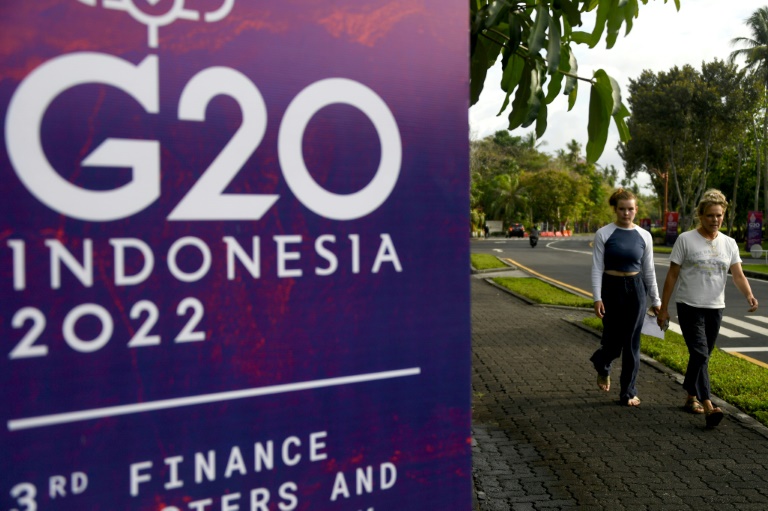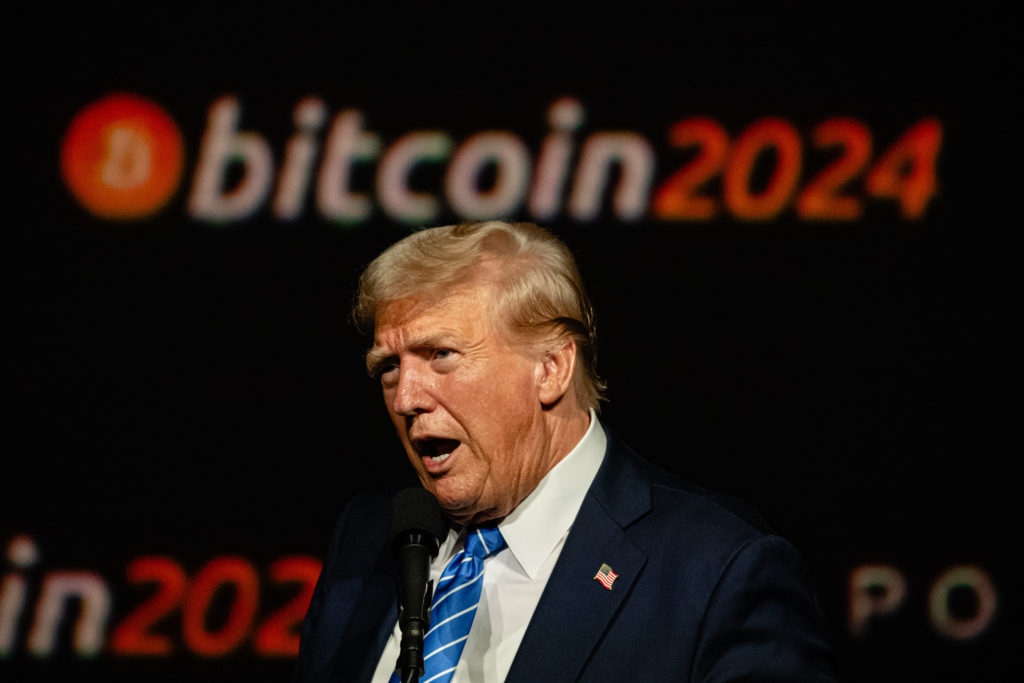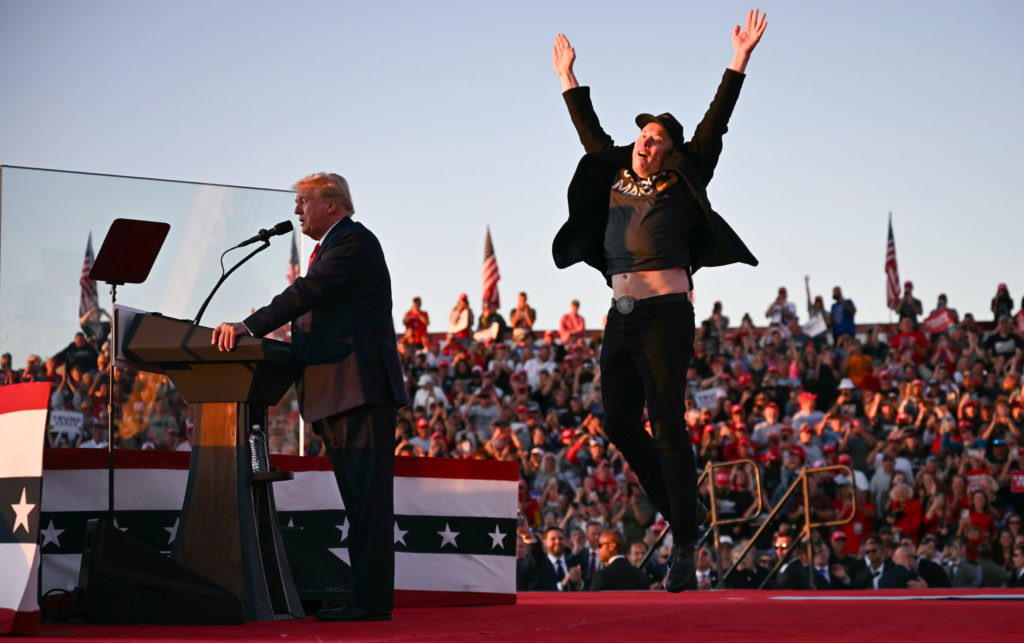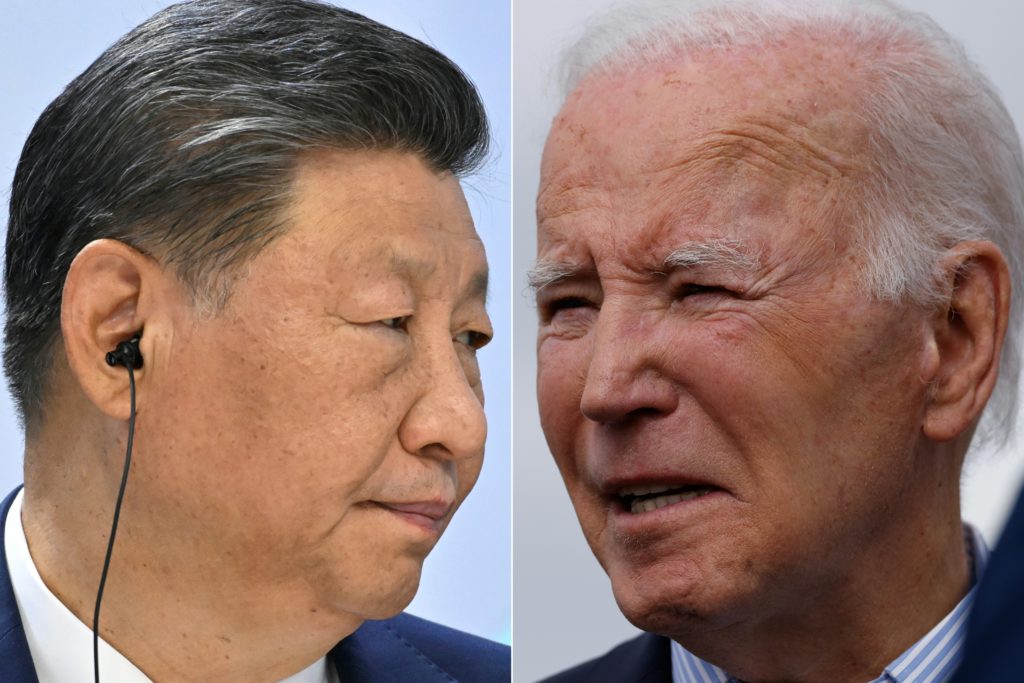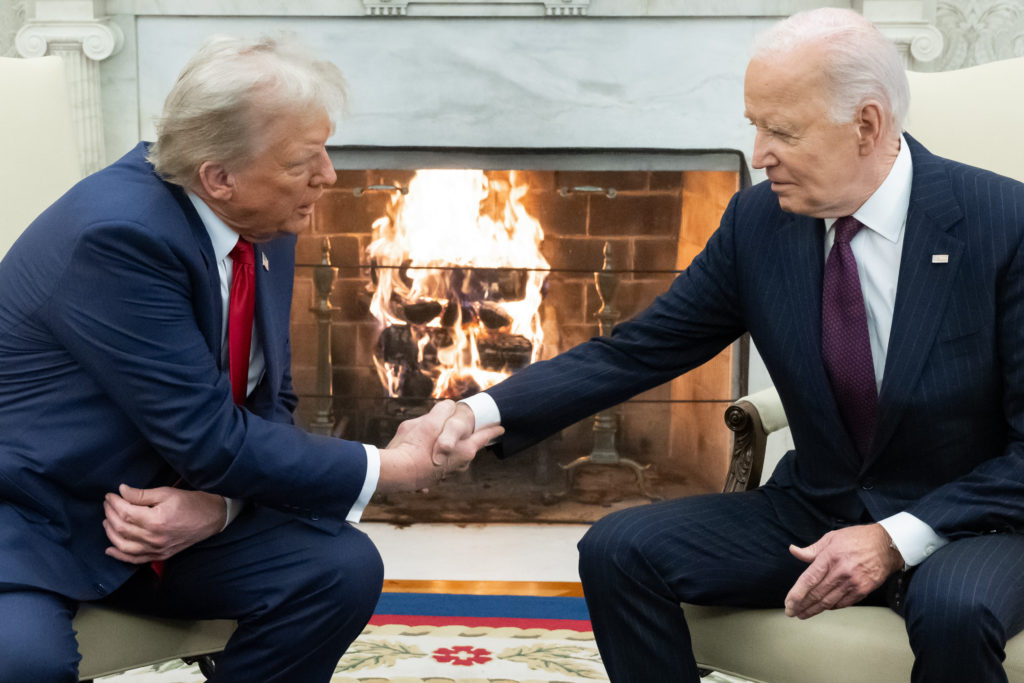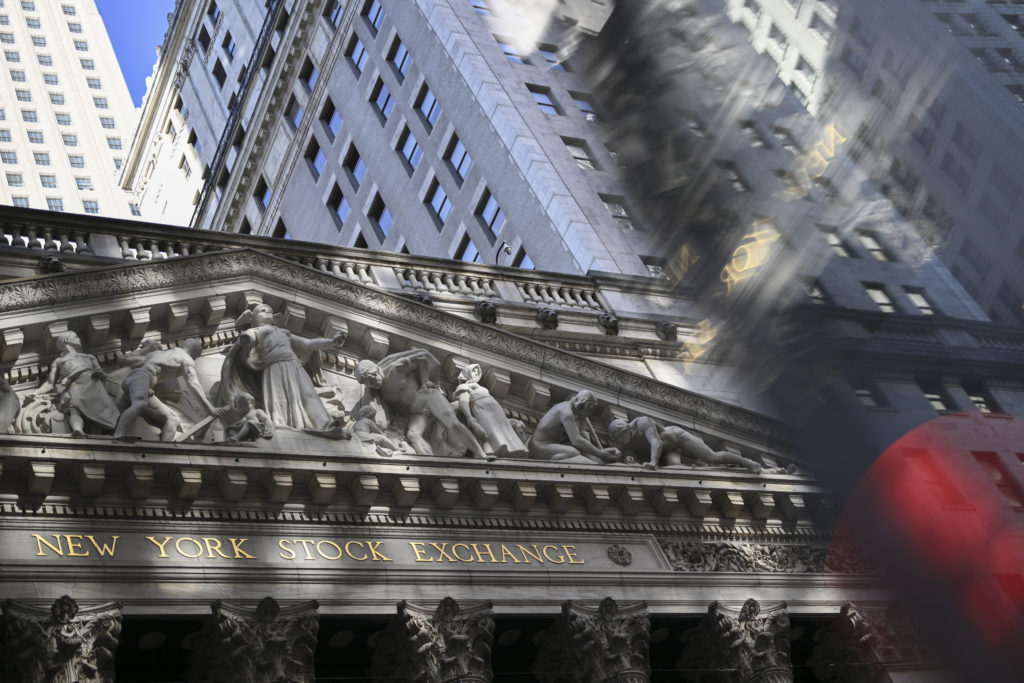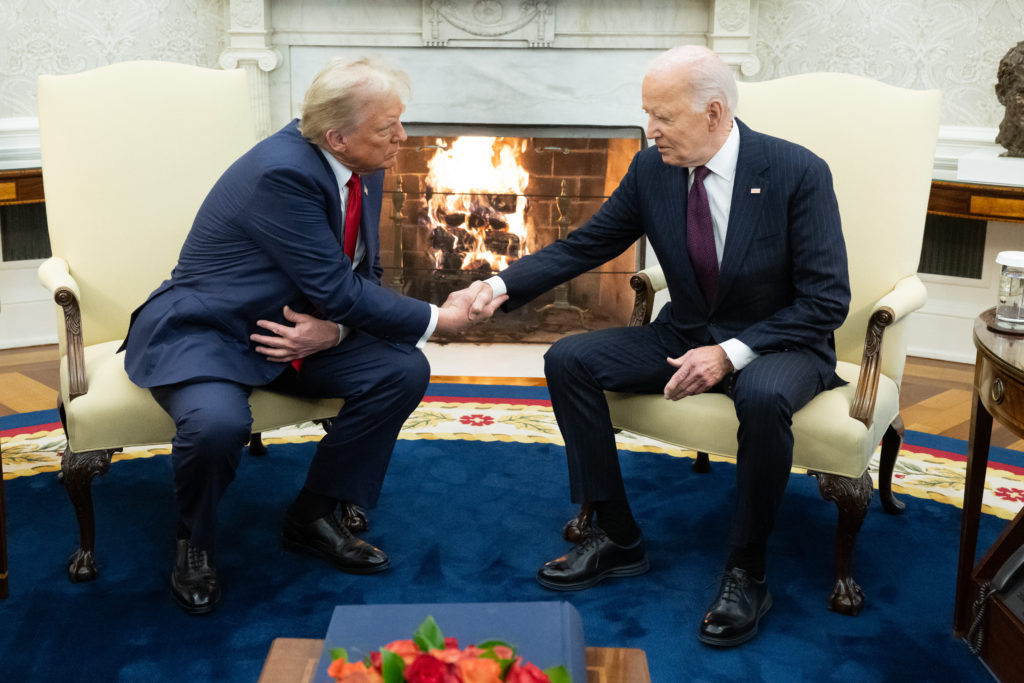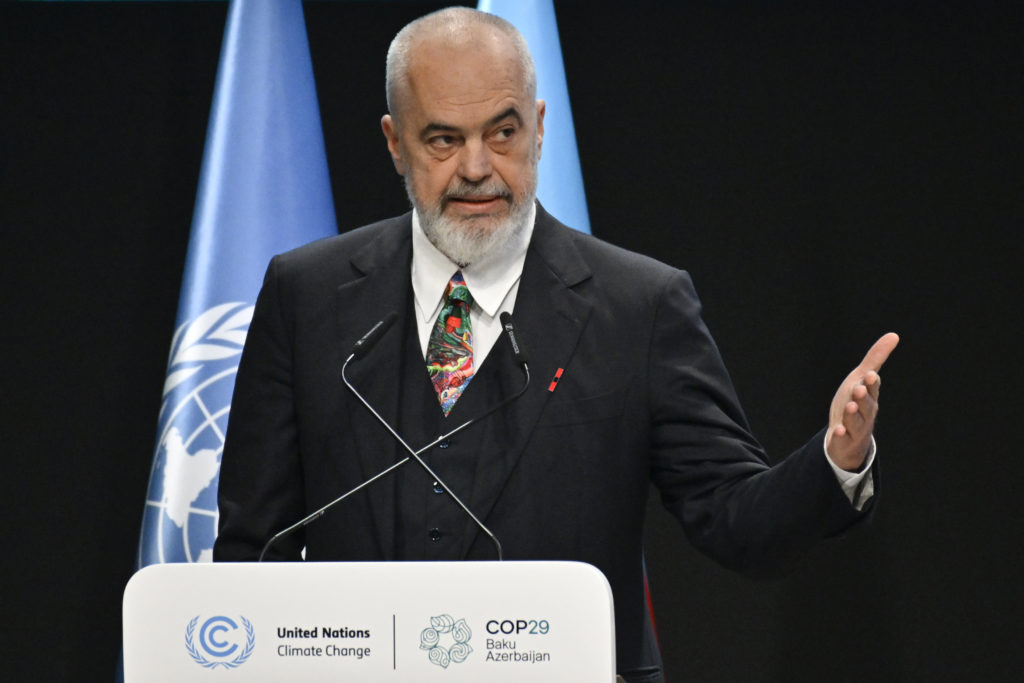Group of 20 finance ministers and central bank chiefs from top economies will meet in Indonesia Friday for talks on the fallout from Russia’s invasion of Ukraine, which has roiled markets, spiked food prices and stoked breakneck inflation.
The two-day meeting takes place on the resort island of Bali under the shadow of war a week after the forum’s foreign ministers rounded on Moscow’s top diplomat, prompting him to walk out of the talks.
Top global finance figures, including US Treasury Secretary Janet Yellen, will discuss the rebound from the coronavirus pandemic. But the impact of the Ukraine war –- weighing on an already brittle global recovery –- will now top the agenda.
A day before the meeting, Yellen set the tone calling Russia’s war in Ukraine the “greatest challenge” to the global economy and said members of Putin’s government “have no place” at the talks.
“We are seeing negative spillover effects from that war in every corner of the world, particularly with respect to higher energy prices, and rising food insecurity,” she said.
Yellen is expected to press G20 allies for a price cap on Russian oil to choke off President Vladimir Putin’s war chest and pressure Moscow to end its invasion while bringing down energy costs.
The talks will also expose any divisions between the world’s top economies on Moscow’s unilateral offensive, but Russian Foreign Minister Sergei Lavrov found himself largely outnumbered at last week’s gathering.
Russian Finance Minister Anton Siluanov will only participate virtually in the ministerial meeting, officials say, while Ukrainian Finance Minister Serhiy Marchenko will address ministers virtually at the start of talks on Friday.
Yellen in April led a multinational walkout of finance officials as Russian delegates spoke at a G20 meeting in Washington. No communique was issued at the end of that meeting.
It is unclear if a similar walkout will take place at this meeting, after no foreign minister walked out last week, but Yellen would not be drawn on if they would repeat their joint action on Friday.
There is also unlikely to be a final communique issued when talks end on Saturday with disagreements over Russia being the cause of current global economic headwinds.
– World tax overhaul deadline set –
G20 chair Indonesia -– which pursues a neutral foreign policy –- has refrained from uninviting Russia despite Western pressure.
Italy and Canada’s finance ministers will be in attendance but Chinese Finance Minister Liu Kun will only attend virtually, according to Indonesian state media, as will Britain’s new Finance Minister Nadhim Zahawi.
International Monetary Fund chief Kristalina Georgieva will appear in person after saying Wednesday the global economic outlook had “darkened significantly” because of Moscow’s invasion.
European Central Bank president Christine Lagarde will participate virtually, but World Bank chief executive David Malpass will not attend.
The meeting is a prelude to the leaders’ summit on the Indonesian island in November that was meant to focus on the global recovery from the Covid-19 pandemic.
But attention has shifted to Moscow’s brutal campaign in Ukraine after it blockaded the ports of one of the world’s most important food producers.
Finance chiefs are expected to discuss how to alleviate the impact on poorer nations that will suffer from supply shortages as a result of the war.
Other issues to be tackled by the ministers include digital financial inclusion –- with more than a billion of the world’s population still without access to a bank account -– and the deadline for an international tax rules overhaul.
The Organisation for Economic Cooperation and Development (OECD) will present the ministers with an update on the progress of international tax changes that will set a global minimum corporate tax rate of 15 percent by 2024, a year later than originally planned.
The deadline for the passing of legislation underpinning the new rules –- which will also seek to divert a quarter of major multinationals’ profits to the nations where their customers reside -– was set at mid-2023, the OECD said.

